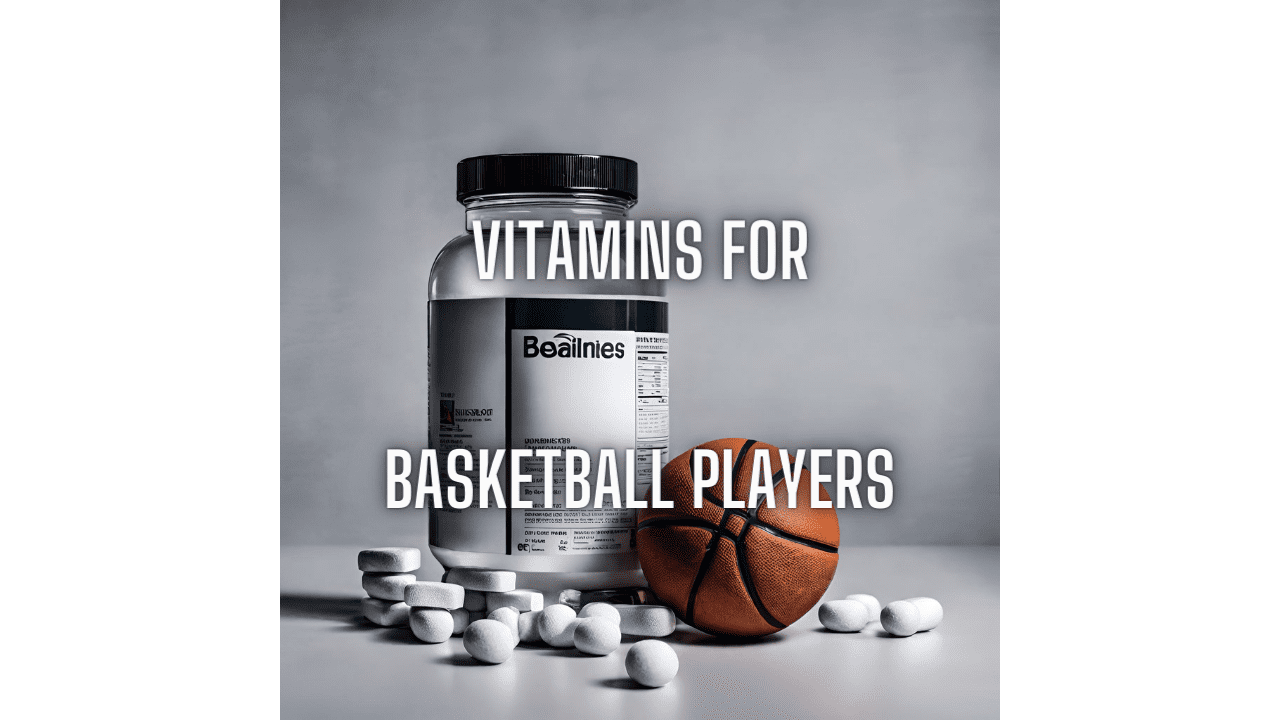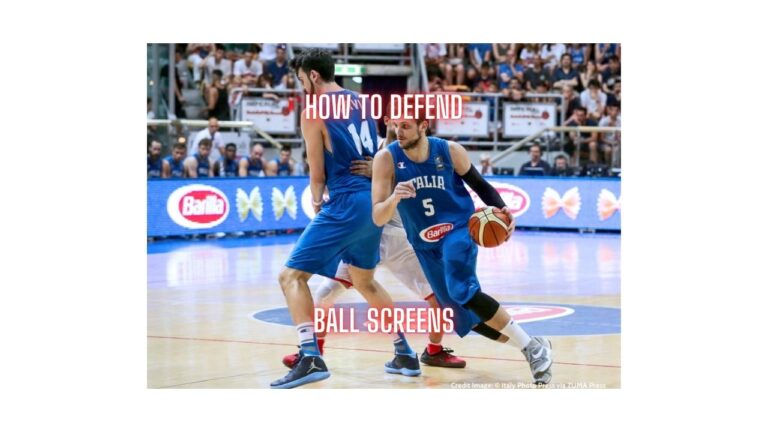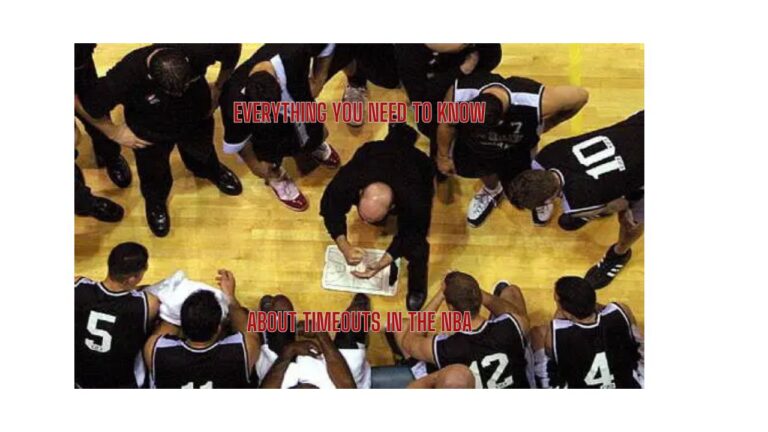The Role of Vitamins For Basketball Players Nutrition

Introduction
When it comes to basketball performance, nutrition serves as a cornerstone, laying the foundation for athletes to achieve their fullest potential on the court. Whether it’s endurance, strength, agility, or recovery, the fuel we provide our bodies directly impacts our ability to perform at the highest levels. Basketball, a sport characterized by its dynamic movements, explosive bursts of speed, and relentless endurance, demands a meticulous approach to nutrition to support the unique needs of its players.
Brief Overview of the Importance of Nutrition in Athletic Performance
Nutrition isn’t merely about filling stomachs; it’s about fueling the body with the essential nutrients it needs to excel. Athletes, including basketball players, require a balanced diet rich in carbohydrates, proteins, fats, vitamins, minerals, and hydration to optimize their performance and support recovery. Carbohydrates provide the primary fuel for energy, proteins aid in muscle repair and growth, and fats serve as a concentrated source of energy for endurance activities. Moreover, proper hydration is crucial for regulating body temperature, maintaining electrolyte balance, and supporting overall performance.
The significance of nutrition in athletic performance cannot be overstated. Inadequate nutrition can lead to fatigue, decreased endurance, impaired cognitive function, increased risk of injury, and delayed recovery. Conversely, a well-rounded diet tailored to the specific needs of athletes can enhance energy levels, improve endurance, speed up recovery, and optimize overall performance on the court. You can read more about this here
Introduction to the Role of Vitamins in Supporting the Unique Nutritional Needs of Basketball Players
Among the essential nutrients crucial for basketball players, vitamins play a vital role in supporting various physiological functions that are essential for optimal performance. Vitamins are organic compounds that our bodies require in small amounts to carry out a range of biochemical processes, including energy production, immune function, tissue repair, and antioxidant defense.
For basketball players, whose bodies are subjected to intense physical exertion and high levels of stress during training and competition, adequate intake of vitamins is paramount. Each vitamin serves a unique purpose, supporting different aspects of athletic performance and overall health. From bolstering immune function to enhancing energy production and promoting muscle recovery, vitamins play a multifaceted role in supporting the demands of the game.
Understanding the specific vitamin needs of basketball players and incorporating them into their diet and supplementation regimen can help optimize performance, reduce the risk of injury, and support long-term health and well-being. In the following sections, we will delve deeper into the key vitamins essential for basketball players, explore dietary sources of these vitamins, and discuss strategies for optimizing vitamin intake to unlock peak performance on the basketball court.
What Do Vitamins Do For Basketball Players?
Specific Vitamins Essential for Optimal Performance and Recovery in Basketball Players
-
Vitamin A:
Essential for vision, vitamin A plays a crucial role in maintaining eye health and visual acuity, which are vital for tracking the ball, assessing the court, and making split-second decisions during gameplay.
-
Vitamin B Complex:
The B vitamins, including B1 (thiamine), B2 (riboflavin), B3 (niacin), B6 (pyridoxine), B12 (cobalamin), and folate, are involved in energy metabolism, nervous system function, and red blood cell production. They play a key role in converting carbohydrates, fats, and proteins into usable energy, supporting optimal brain function, and reducing fatigue during prolonged periods of exertion.
-
Vitamin C:
As a powerful antioxidant, vitamin C helps combat oxidative stress and inflammation induced by intense physical activity. It also supports immune function, reducing the risk of infections and illnesses that can sideline athletes and impair performance.
-
Vitamin D:
Critical for bone health and muscle function, vitamin D plays a role in calcium absorption and utilization, supporting bone strength and integrity. It also regulates muscle contraction and may help reduce the risk of musculoskeletal injuries in basketball players.
-
Vitamin E:
Another potent antioxidant, vitamin E helps protect cells from damage caused by free radicals generated during exercise. It also supports muscle recovery and repair, reducing inflammation and soreness after intense workouts or games.
Explanation of How Deficiencies in Key Vitamins Can Impact Athletic Performance In Basketball and Overall Health
Deficiencies in key vitamins can have profound effects on athletic performance and overall health, compromising energy production, immune function, and recovery processes. For example:
- Vitamin A deficiency may impair night vision and visual acuity, affecting a player’s ability to track the ball and make accurate passes or shots.
- Insufficient intake of B vitamins can lead to fatigue, weakness, and poor concentration, hindering performance on the court.
- Low levels of vitamin C may increase the risk of infections and illnesses, leading to missed games or practices and prolonged recovery times.
- Inadequate vitamin D intake may compromise bone health, increasing the risk of stress fractures and other injuries, while also impairing muscle function and recovery.
- Vitamin E deficiency may prolong muscle soreness and inflammation, delaying recovery and impairing subsequent performances.
In summary, maintaining optimal levels of key vitamins is essential for supporting athletic performance, enhancing recovery, and safeguarding overall health in basketball players. By ensuring adequate intake of these vital nutrients through a balanced diet and, when necessary, supplementation, athletes can maximize their potential on the court and minimize the risk of injuries and setbacks.
FAQ – Vitamins For Basketball Players
-
Why are vitamins important for basketball players?
- Vitamins are essential for maintaining overall health, supporting energy production, enhancing recovery, and optimizing athletic performance for basketball players.
-
What specific vitamins do basketball players need?
- Basketball players require a range of vitamins, including vitamin A, B complex (B1, B2, B3, B6, B12, folate), vitamin C, vitamin D, and vitamin E, among others.
-
How do vitamins contribute to energy production?
- Vitamins play crucial roles in energy metabolism, helping to convert carbohydrates, fats, and proteins into usable energy for basketball players during intense physical activity.
-
Can’t athletes get all the vitamins they need from food alone?
- While a balanced diet rich in fruits, vegetables, lean proteins, and whole grains can provide many essential vitamins, athletes may benefit from supplementation to ensure optimal intake, especially during periods of heavy training or competition.
-
What vitamin supports bone health for basketball players?
- Vitamin D is crucial for bone health, as it helps with calcium absorption and utilization, supporting bone strength and integrity, which is important for preventing injuries in basketball players.
-
How do vitamins help with muscle recovery?
- Vitamins such as vitamin C and vitamin E act as antioxidants, helping to reduce inflammation and oxidative stress in muscles, which promotes faster recovery after intense workouts or games for basketball players.
-
Can vitamin deficiencies affect athletic performance?
- Yes, deficiencies in key vitamins can impair energy production, immune function, and muscle recovery, leading to fatigue, weakness, increased risk of injuries, and decreased athletic performance for basketball players.
-
What are some signs of vitamin deficiencies in basketball players?
- Signs of vitamin deficiencies may include fatigue, weakness, poor concentration, frequent infections or illnesses, muscle soreness, and delayed recovery after workouts or games.
-
Are there specific vitamins that can improve cognitive function for basketball players?
- B vitamins, particularly vitamin B6 and vitamin B12, are important for brain function and may help improve cognitive function, focus, and concentration for basketball players.
-
Can vitamin supplementation enhance athletic performance?
- While vitamin supplementation alone may not directly enhance athletic performance, ensuring optimal vitamin intake through a balanced diet and supplementation can support overall health, energy levels, recovery, and athletic performance for basketball players.
-
Is it possible to overdose on vitamins through supplementation?
- Yes, it is possible to overdose on certain vitamins, particularly fat-soluble vitamins like vitamin A and vitamin D, which can accumulate in the body and cause toxicity if consumed in excess amounts. It’s important for basketball players to follow recommended dosages and consult with a healthcare professional before starting any supplementation regimen.
-
Are there any vitamins that can help boost the immune system for basketball players?
- Vitamin C is well-known for its immune-boosting properties and can help reduce the risk of infections and illnesses, which is particularly important for basketball players who may be more susceptible to illnesses due to intense training and competition schedules.
-
Can vitamins help prevent injuries for basketball players?
- While vitamins alone cannot prevent injuries, maintaining optimal levels of key vitamins such as vitamin D and vitamin E can support bone health, muscle function, and recovery, which may help reduce the risk of injuries in basketball players.
-
How can basketball players ensure they are getting enough vitamins in their diet?
- Basketball players can ensure they are getting enough vitamins in their diet by consuming a variety of nutrient-dense foods, including fruits, vegetables, lean proteins, whole grains, and dairy products. They may also consider supplementation under the guidance of a healthcare professional.
-
Are there specific vitamins that can help with endurance for basketball players?
- B vitamins, particularly vitamin B1 and vitamin B2, play important roles in energy metabolism and can help improve endurance and stamina for basketball players.
-
Can vitamins help with recovery after games or intense workouts?
- Yes, vitamins such as vitamin C and vitamin E act as antioxidants, helping to reduce inflammation and oxidative stress in muscles, which promotes faster recovery after games or intense workouts for basketball players.
-
What role do vitamins play in reducing muscle soreness for basketball players?
- Vitamins such as vitamin C and vitamin E can help reduce muscle soreness by reducing inflammation and oxidative stress in muscles after intense workouts or games for basketball players.
-
Are there vitamins that can help with mental focus and concentration for basketball players?
- B vitamins, particularly vitamin B6 and vitamin B12, are important for brain function and may help improve mental focus, concentration, and cognitive function for basketball players.
-
Can vitamin supplementation replace a healthy diet for basketball players?
- No, vitamin supplementation should not replace a healthy diet for basketball players. While supplementation can help fill nutrient gaps, a balanced diet rich in whole foods is essential for providing a wide range of vitamins, minerals, and other nutrients necessary for optimal health and athletic performance.
-
Is it necessary for basketball players to get their vitamin levels tested regularly?
- While regular vitamin testing may not be necessary for all basketball players, those who suspect they may have deficiencies or are considering supplementation should consult with a healthcare professional to determine their individual vitamin needs and ensure they are meeting their nutritional requirements.



